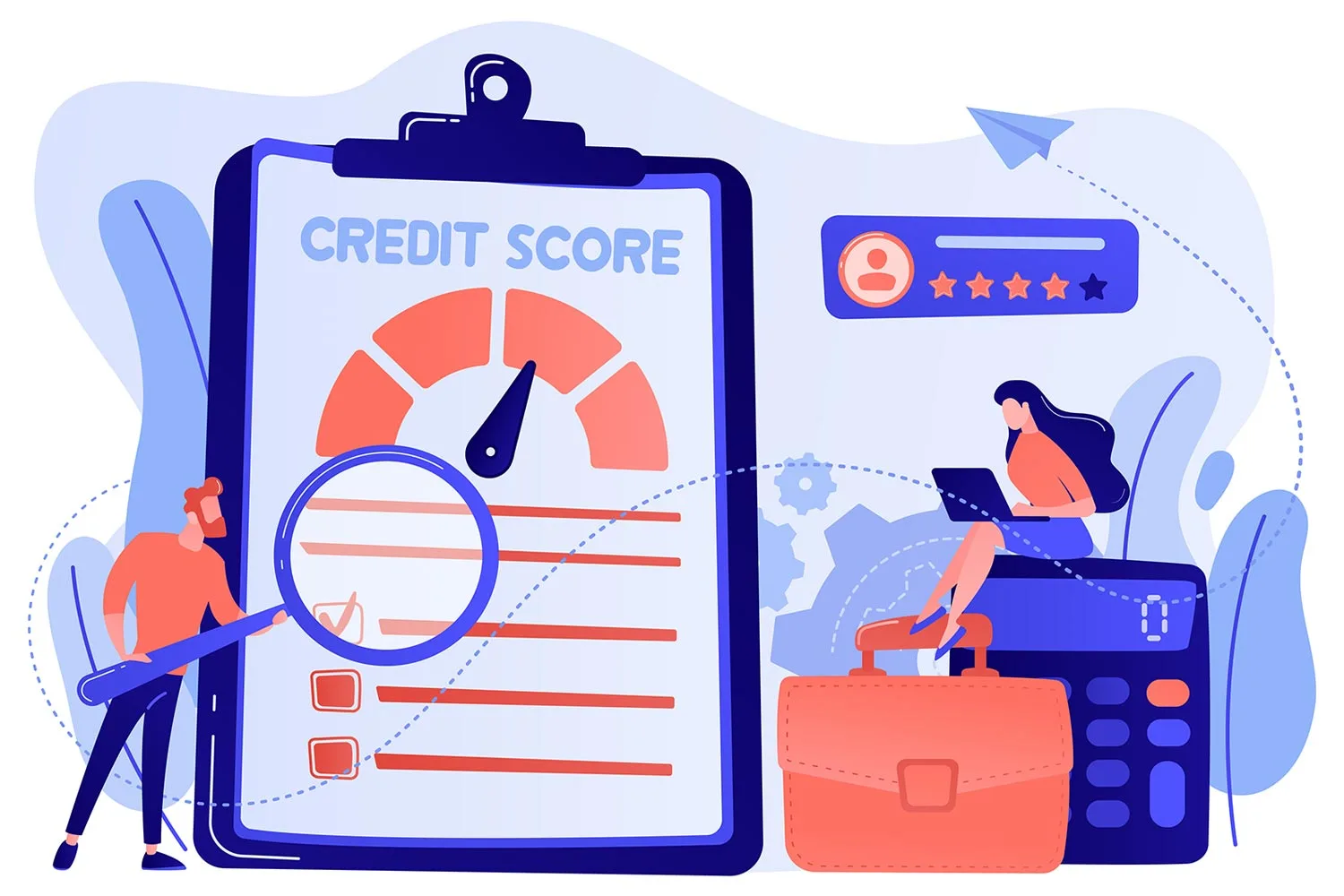- Home
- Personal Finances
- Soft and Hard Credit Checks: How They Work
Soft and Hard Credit Checks: How They Work
- Personal Finances, Personal Loans

When applying for credit, be it a loan, credit card, or mortgage, financial institutions and lenders often assess your creditworthiness through credit checks. These checks are categorized into two main types: soft credit checks and hard credit checks. Understanding the differences between soft and hard credit checks can help you make informed financial decisions and manage your credit effectively. In this article, we will delve into the intricacies of soft and hard credit checks, exploring how they work, their implications, and when they are typically used.
Soft Credit Checks: A Closer Look
Soft credit checks, also known as soft inquiries or soft pulls, are inquiries made on your credit report that do not impact your credit score. Here’s an in-depth understanding of how soft credit checks work:
Definition and Purpose: Soft credit checks are initiated when individuals or organizations access your credit information without your explicit permission or for promotional purposes. These inquiries are typically used for pre-approval offers, background checks, and personal credit checks.
Impact on Credit Score: One of the significant advantages of soft credit checks is that they do not affect your credit score. As they are not associated with new credit applications, they are considered informational rather than evaluative.
Examples of Soft Credit Checks: Common instances where soft credit checks are used include checking your own credit report, pre-qualification offers for credit cards or loans, employer background checks, and credit checks by financial institutions for account monitoring.
Privacy and Consent: Soft credit checks can be conducted without your explicit consent, as they are generally considered harmless and do not impact your creditworthiness. However, it is essential to review your credit report regularly to ensure the accuracy of the information and to identify any potentially fraudulent activities.
Hard Credit Checks: Understanding the Impact
Hard credit checks, also referred to as hard inquiries or hard pulls, are credit inquiries that can affect your credit score and are associated with credit applications. Let’s delve into the key aspects of hard credit checks:
Definition and Purpose: Hard credit checks occur when a lender or financial institution accesses your credit report with your authorization in response to a credit application. They play a crucial role in assessing your creditworthiness and determining the terms of credit extended to you.
Impact on Credit Score: Unlike soft credit checks, hard credit checks can have an impact on your credit score. Each hard inquiry can lead to a slight decrease in your score, typically by a few points. Multiple hard inquiries within a short span of time can indicate increased credit risk and may have a more significant impact on your creditworthiness.
Examples of Hard Credit Checks: Common instances where hard credit checks are conducted include applying for a mortgage, auto loan, personal loan, or credit card. These inquiries are comprehensive evaluations of your credit history and help lenders make informed decisions regarding your credit application.
Timeframe and Duration: Hard credit checks remain on your credit report for up to two years. However, their impact on your credit score usually lessens over time, and after six months, they may have minimal influence on your creditworthiness.
Differentiating Factors: Soft vs. Hard Credit Checks
While both soft and hard credit checks serve different purposes, certain factors can help distinguish between the two:
- Authorization: Soft credit checks can be conducted without your explicit permission, while hard credit checks require your consent as they are directly associated with credit applications.
- Impact on Credit Score: Soft credit checks do not affect your credit score, whereas hard credit checks can lead to a temporary decrease in your score.
- Purpose and Evaluation: Soft credit checks provide information for informational purposes or pre-approval offers, while hard credit checks are used for evaluating creditworthiness during credit applications.
- Visibility on Credit Report: Soft credit checks are visible only to you and do not appear on credit reports accessed by lenders, whereas hard credit checks are visible to lenders and can be seen on your credit report.
Managing Soft and Hard Credit Checks: Tips and Best Practices
Soft and hard credit checks are important and to effectively manage and maintain a healthy credit profile, consider the following tips:
- Regularly Monitor Your Credit Report: Stay vigilant by monitoring your credit report regularly. This allows you to identify any discrepancies, errors, or potentially fraudulent activities associated with soft or hard credit checks.
- Understand the Context of Credit Checks: Be aware of the purpose and implications of credit checks in different scenarios. Understanding whether a credit check is soft or hard can help you gauge its impact on your credit score and financial standing.
- Limit Hard Inquiries: Minimize the number of hard credit inquiries by being selective in your credit applications. Multiple hard inquiries within a short period can raise concerns for lenders and affect your creditworthiness.
- Utilize Soft Credit Checks for Pre-Approval: Take advantage of pre-approval offers and soft credit checks to assess your eligibility for credit cards, loans, or other financial products. This can help you make informed decisions without impacting your credit score.
- Seek Professional Advice: If you have concerns about your credit or need guidance on managing credit checks, consider consulting a financial advisor or credit counseling service. They can provide personalized advice based on your specific financial situation.
Can a lender run soft and hard credit checks for the same loan application?
Yes, it is possible for a lender to run both soft and hard credit checks for the same loan application. Lenders may initially perform a soft credit check to get a preliminary assessment of your creditworthiness and determine if you meet their basic criteria. This allows them to provide pre-approval offers or estimate the terms of the loan. A soft credit check does not impact your credit score.
If you proceed with the loan application after the initial pre-approval stage, the lender may conduct a hard credit check. The hard credit check provides a more comprehensive evaluation of your credit history and is used to make the final decision on approving the loan and determining the specific terms, including interest rates and loan amounts. A hard credit check may have a temporary impact on your credit score.
It’s important to note that multiple hard credit checks within a short period, typically within a 14-45 day window depending on the credit scoring model, are usually treated as a single inquiry to minimize the potential negative impact on your credit. This allows you to shop around for the best loan terms without significantly affecting your creditworthiness.
soft and hard credit checks Conclusions
Soft and hard credit checks play distinct roles in evaluating creditworthiness and assessing financial risk. Understanding the differences between these two types of inquiries can help you navigate the world of credit more effectively. By monitoring your credit report, managing hard inquiries, and leveraging soft credit checks to your advantage, you can maintain a healthy credit profile and make
Soft Credit Checks Installment Loans
Get an Installment Loan to cover your Unexpected Expenses.
You can get up to $1,000 as soon as the next business day.







